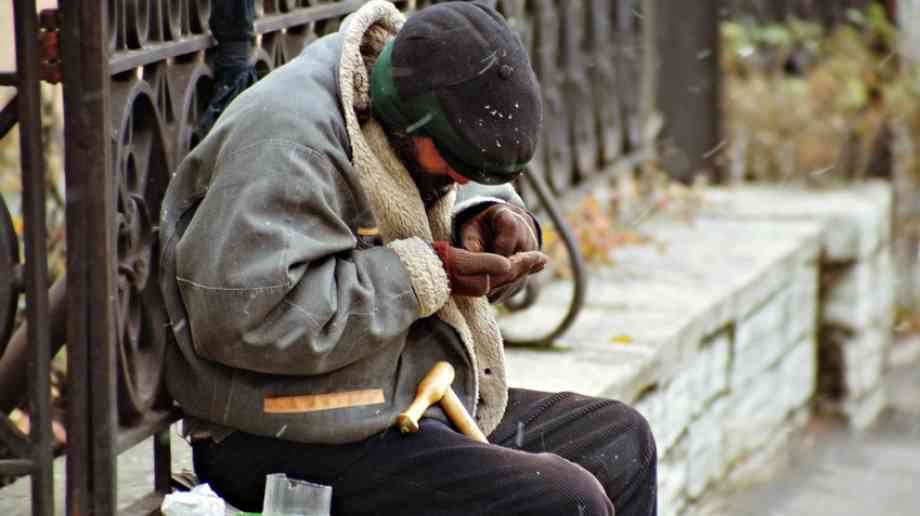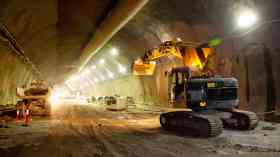Sue Robb of 4Children talks to Julie Laughton and Alison Britton from the Department for Education about the role of childminders in delivering the 30 hours free entitlement.
Nearly quarter of a million homeless people in Britain

Nearly 160,000 households are experiencing the worst forms of homelessness across Britain, a new report reveals.
The report, conducted for Crisis by Heriot-Watt University, also forecasts that rough sleeping is going to rise by 76 per cent in the next decade unless the governments in Westminster, Scotland and Wales take long-term action to mitigate it.
Homelessness projections: Core homelessness in Great Britain: Crisis provides the most up-to-date figures of the worst forms of homelessness, including rough sleeping and sofa surfing, as well as 25-year forecasts for each category across England, Wales and Scotland.
It estimates that at any one time in 2016 across Britain 9,100 people were sleeping rough, 68,300 households were sofa surfing, 19,300 households were living in unsuitable temporary accommodation, and 37,200 households were living in hostels.
26,000 households were living in her circumstances, including 8,900 sleeping in tents, cars or public transport, 12,100 living in squats, and 5,000 in women’s refuges or winter night shelters.
The report warns that if current policies continue unchanged, the most acute forms of homelessness are going to continue to rise, with overall numbers estimated to increase by more than a quarter in the coming decade and households in unsuitable temporary accommodation set to nearly double.
Based on the model, a 60 per cent increase in new housing could reduce levels of homelessness by 19 per cent by 2036, while increased prevention work could reduce levels by 34 per cent.
In response to the report’s findings, Crisis is calling on the public to join its Everybody In campaign, a national movement which aims to end the worst forms of homelessness once and for all.
Jon Sparkes, chief executive of Crisis, said: “This year Crisis marks its 50th anniversary, but that’s little cause for celebration. We still exist because homelessness still exists, and today’s report makes it only too clear that unless we take action as a society, the problem is only going to get worse with every year that passes. That means more people sleeping on our streets, in doorways or bus shelters, on the sofas of friends or family, or getting by in hostels and B&Bs. In order to tackle this, we need to first understand the scale of the problem.
“Regardless of what happens in people’s lives, whatever difficulties they face or choices they make, no one should ever have to face homelessness. With the right support at the right time, it doesn’t need to be inevitable. There are solutions, and we’re determined to find them and make them a reality.
“Yet we can’t do this alone, which is why we’re calling on the public to back our Everybody In campaign and help us build a movement for change. Together we can find the answers, and make sure those in power listen to them.”
Responding to new analysis, Judith Blake, housing spokesperson at the Local Government Association, said: “Councils want to end homelessness. As we have warned, councils are housing the equivalent of an extra secondary school’s worth of homeless children every month. For families, rising homelessness is tragic. For councils housing homeless people, it is unsustainable.
“Homelessness is everyone’s business, and councils need the help of health, employment, and housing partners to deliver ambitions to end it. In particular, councils need to be able to adapt the implementation of some welfare reforms to ensure there are housing options for people on low incomes.
“There is no substitute for a renaissance in council house building if we’re to truly address the rising homelessness we face as a nation. For that to happen, government needs to allow councils to borrow to invest in genuinely affordable housing, and to keep all of their receipts from Right to Buy sales, so that money can be reinvested into delivering genuinely affordable homes.”
Company Focus
The Isuzu D-Max is a rugged workhorse that can fulfil a myriad of purposes as both a business and personal vehicle. Consequently, the D-Max is a particularly popular choice when it comes to farming, construction, and trade industries. Uncompromising in nature, the D-Max strives to be the ideal companion for many business needs.
Event Diary
UKREiiF has quickly become a must-attend in the industry calendar for Government departments and local authorities.
The multi-award-winning UK Construction Week (UKCW), is the UK’s biggest trade event for the built environment that connects the whole supply chain to be the catalyst for growth and positive change in the industry.
Supplier Profiles
Geo Energy
At GeoEnergy Design, we're on a mission to disrupt the traditional way heating and cooling ha
Latest Features
Professor Harith Alani, director of the Knowledge Management Institute at the Open University explains how AI can be used for good and bad.
Alex Lawrence, head of health & social care, techUK sets out techUK’s Five Point Plan for CareTech.

















